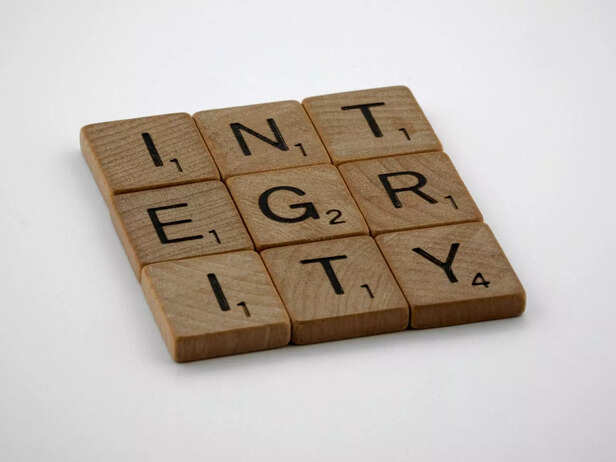If The Attack Is On Self-Respect, Then Even Love Should Be Rejected – Chanakya Niti
Riya Kumari | May 02, 2025, 23:11 IST
( Image credit : Freepik )
You know that moment in every romcom where the girl’s mascara is running like a track star, and she’s standing in the rain, screaming, “But I love you!” Yeah, no. We’re done with that era. This is the age of wireless earbuds, emotional boundaries, and the hard-earned realization that if love makes you shrink, it’s not love—it’s a corset from hell. And listen, I say this as someone who once mistook an emotional breadcrumb trail for a full-course meal.
We all romanticize endurance in love. We applaud people who "stay"—who hold on, who forgive, who bend. We quote poetry about sacrifice, make playlists about second chances, and watch films where the protagonist suffers endlessly in the name of devotion. But somewhere between the art and the agony, we forget to ask: What is the cost? Chanakya said, “If the attack is on self-respect, then even love should be rejected.” Not corrected. Not tolerated. Rejected. This isn’t cold-hearted. This is clarity. Because if the price of keeping love is quietly losing yourself… it’s too expensive.
1. Self-Respect Isn’t Arrogance

Many people confuse self-respect with pride. They think walking away means you’re egoistic, unwilling to compromise, or just “too much.” But there’s a difference between having an ego and having a boundary. Self-respect means you know who you are. You know what peace feels like in your body.
You know what kind of tone disturbs your gut. You know when something small, like a backhanded compliment or a joke at your expense, isn’t harmless—it’s humiliating. And the moment love asks you to stay silent in those moments “for the sake of the relationship,” that’s not compromise. That’s betrayal. Of yourself.
2. Real Love Doesn’t Shrink You. It Sees You

Any relationship that demands you make yourself smaller, quieter, more manageable, is not love—it’s control dressed in affection. The most dangerous thing about toxic love is that it often comes wrapped in tenderness. A kind voice, a warm touch, followed by a subtle dismissal of your needs.
And because you remember the softness, you start doubting the sting. But love that asks you to dilute your truth is not love—it’s manipulation. If you’re constantly adjusting your tone, your dreams, your reactions just to maintain peace, then the relationship may be surviving—but you’re not.
3. Loyalty to Love Should Not Mean Disloyalty to Self

We’ve been taught that staying loyal is a virtue. And it is. But only if that loyalty includes yourself. Staying in love while your self-worth slowly crumbles is not romantic. It’s erosion. It’s convincing yourself that if you just love harder, things will get better—while the other person keeps taking, not realizing that what they’re draining is you.
Sometimes, love asks for space. Sometimes, it asks for understanding. But if it ever asks for silence when you’re in pain, if it asks for endurance while you’re being diminished, then it’s not love anymore—it’s fear of losing something you’ve already lost.
4. Leaving Isn’t Giving Up. It’s Growing Up

The decision to walk away is not always dramatic. It’s not always angry. Often, it’s quiet. A realization that you’ve become someone you don’t recognize in the mirror. That your laughter feels like background noise. That your opinions echo back as arguments.
And that’s when you remember—you are not meant to suffer where you’re supposed to feel safe. Leaving someone you love because they don’t honor your dignity is not weakness. It’s strength. It’s saying: I will not abandon myself, even for someone I love. Because the greatest loss isn’t losing them—it’s losing your voice while trying to keep them.
5. Chanakya Wasn’t Speaking About Romance

Chanakya was a political thinker, not a relationship coach. But truth is truth—no matter the century. When he said self-respect comes first, he wasn’t advocating ego. He was reminding us of what holds societies, leaders, and people together: integrity.
Apply that to love, and it becomes simple: Any love that costs your self-respect is no longer noble. It’s dangerous. Not because love isn’t sacred. But because when love is used to silence, shame, or control, it becomes a weapon. And your silence becomes the trigger.
We’re not taught to leave. We’re taught to fix. To stay. To try. And those instincts aren’t wrong—they’re compassionate. But compassion doesn’t mean staying in places that shrink your soul. You can forgive. You can wish them well. But still leave. With grace, not guilt. Because self-respect isn’t a wall you build to keep people out—it’s the ground you stand on so you don’t fall when they try to push you under.
And if you ever forget that, remember this: You were never meant to fight for love at the cost of fighting against yourself. Not even Chanakya would recommend that.
1. Self-Respect Isn’t Arrogance

Integrity
( Image credit : Pexels )
Many people confuse self-respect with pride. They think walking away means you’re egoistic, unwilling to compromise, or just “too much.” But there’s a difference between having an ego and having a boundary. Self-respect means you know who you are. You know what peace feels like in your body.
You know what kind of tone disturbs your gut. You know when something small, like a backhanded compliment or a joke at your expense, isn’t harmless—it’s humiliating. And the moment love asks you to stay silent in those moments “for the sake of the relationship,” that’s not compromise. That’s betrayal. Of yourself.
2. Real Love Doesn’t Shrink You. It Sees You

Hug
( Image credit : Pexels )
Any relationship that demands you make yourself smaller, quieter, more manageable, is not love—it’s control dressed in affection. The most dangerous thing about toxic love is that it often comes wrapped in tenderness. A kind voice, a warm touch, followed by a subtle dismissal of your needs.
And because you remember the softness, you start doubting the sting. But love that asks you to dilute your truth is not love—it’s manipulation. If you’re constantly adjusting your tone, your dreams, your reactions just to maintain peace, then the relationship may be surviving—but you’re not.
3. Loyalty to Love Should Not Mean Disloyalty to Self

Cry
( Image credit : Pexels )
We’ve been taught that staying loyal is a virtue. And it is. But only if that loyalty includes yourself. Staying in love while your self-worth slowly crumbles is not romantic. It’s erosion. It’s convincing yourself that if you just love harder, things will get better—while the other person keeps taking, not realizing that what they’re draining is you.
Sometimes, love asks for space. Sometimes, it asks for understanding. But if it ever asks for silence when you’re in pain, if it asks for endurance while you’re being diminished, then it’s not love anymore—it’s fear of losing something you’ve already lost.
4. Leaving Isn’t Giving Up. It’s Growing Up

Self love
( Image credit : Pexels )
The decision to walk away is not always dramatic. It’s not always angry. Often, it’s quiet. A realization that you’ve become someone you don’t recognize in the mirror. That your laughter feels like background noise. That your opinions echo back as arguments.
And that’s when you remember—you are not meant to suffer where you’re supposed to feel safe. Leaving someone you love because they don’t honor your dignity is not weakness. It’s strength. It’s saying: I will not abandon myself, even for someone I love. Because the greatest loss isn’t losing them—it’s losing your voice while trying to keep them.
5. Chanakya Wasn’t Speaking About Romance

Couple fight
( Image credit : Pexels )
Chanakya was a political thinker, not a relationship coach. But truth is truth—no matter the century. When he said self-respect comes first, he wasn’t advocating ego. He was reminding us of what holds societies, leaders, and people together: integrity.
Apply that to love, and it becomes simple: Any love that costs your self-respect is no longer noble. It’s dangerous. Not because love isn’t sacred. But because when love is used to silence, shame, or control, it becomes a weapon. And your silence becomes the trigger.
Let Love Go, If It Doesn’t Let You Be You
And if you ever forget that, remember this: You were never meant to fight for love at the cost of fighting against yourself. Not even Chanakya would recommend that.
